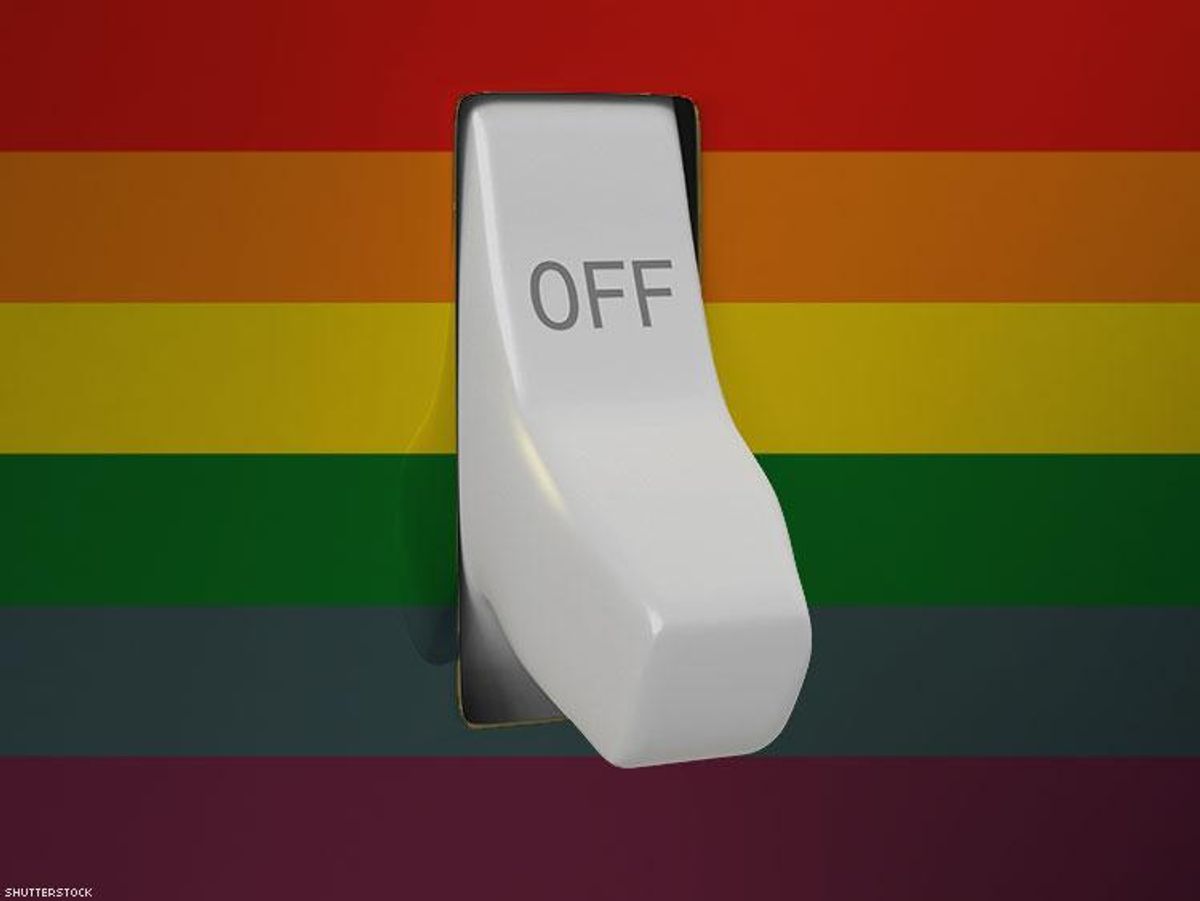News & Opinion
YouTube is Still Restricting LGBTQ Content

Despite announcing they'd fixed "Restricted Mode," YouTube's problematic LGBTQ censorship is still happening.
April 26 2017 11:15 AM EST
May 31 2023 6:33 PM EST
By continuing to use our site, you agree to our Private Policy and Terms of Use.

Despite announcing they'd fixed "Restricted Mode," YouTube's problematic LGBTQ censorship is still happening.
Late last week, YouTube proudly announced it had fixed an issue that hid LGBTQ-themed content from users who had "Restricted Mode" turned on. The Internet rejoiced at the news, with social media and online magazines reporting that their queer-erasure had ended.
However, there's just one problem: it wasn't true.
It's hard to say how long "Restricted Mode" has been a problem, but it gained widespread awareness in mid-March, when numerous LGBTQ YouTubers discovered their content had been flagged. When computers have the mode enabled, certain videos simply vanish; it's generally employed by libraries, schools and protective parents.
Related | YouTube's Problematic New Restricted Mode Censors LGBTQ Content
YouTube carefully guards the means by which it identifies videos deserving of restriction, explaining only that they rely on "community flagging, age-restrictions, and other signals to identify and filter out potentially inappropriate content." But there's a problem with the algorithm that decides which content is acceptable for all users.
In the midst of last month's outcry, users discovered that lesbian weddings, queer theory and a video of a cat sitting next to a rainbow flag were all deemed inappropriate for users in Restricted Mode.
This is a problem to which I've been paying particularly close and anxious attention. I've been creating videos on LGBTQ issues and entertainment for nearly a decade, dating back to the Prop 8 campaign in California, and on my channel I've tackled everything from elections to marriage equality to queer representation on sitcoms.
When the news broke in March that YouTube was hiding queer content, I checked to see if my videos were affected--and sure enough, they were. When in Restricted Mode, YouTube was blocking videos that I'd made about gay veterans, about discrimination against trans people, about LGBT icons in entertainment, about the science of HIV and about the ethics of outing.
This is a problem because the users most likely to be affected by Restricted Mode are youth--that is, people whose access to information about sexual orientation and gender identity can already be limited. Young people, particularly those who are geographically isolated, need to know that they have a place in a queer community. By shutting down the connections that videos provide, YouTube has essentially returned LGBTQ youth to the dark pre-Internet days, and sent a message that there's something inappropriate and taboo about being queer.
But YouTube now says they've fixed the problem, unfiltering 12 million previously-unavailable videos. That's great news--so, what's changed? Well, as far as my channel goes, nothing. The same videos are still hidden. In fact, new videos continue to vanish: a recent one about Neil Gorsuch is unavailable in Restricted Mode and a video about RuPaul's DragCon was hidden before I even had time to publish it.
Related | Here's How You Can Help Stop Chechnya's Gay Concentration Camps
What's more, YouTube just flagged one of my videos--an explanation of the human rights crisis in Chechnya--as not being "advertiser friendly," which means it's not eligible for monetization. For many creators, YouTube monetization is an important source of income; they're able to make content for the platform thanks in part to the revenue that their videos generate. When YouTube disqualifies videos on particular topics from their revenue program, it has a chilling effect on the content likely to be created.
To be clear, I'm not going to stop making content about LGBTQ civil rights just because the company blocked monetization on one video. I'm fortunate enough that I don't depend solely on YouTube for my income. But other creators do rely on that revenue, and they're now faced with a difficult choice: either stop talking about important but controversial subjects, or pay a financial price for speaking out.
There's no doubt in my mind that YouTube's intentions are good, and that they have no desire to hide LGBTQ content. I'll always remember how, in the early days of my video activism, Google employees were major donors to the campaign to defeat Prop 8.
But the fact that their system is still flagging queer content is a huge concern--particularly when they're triumphantly announcing that they've fixed the problem.
Sexy MAGA: Viral post saying Republicans 'have two daddies now' gets a rise from the right